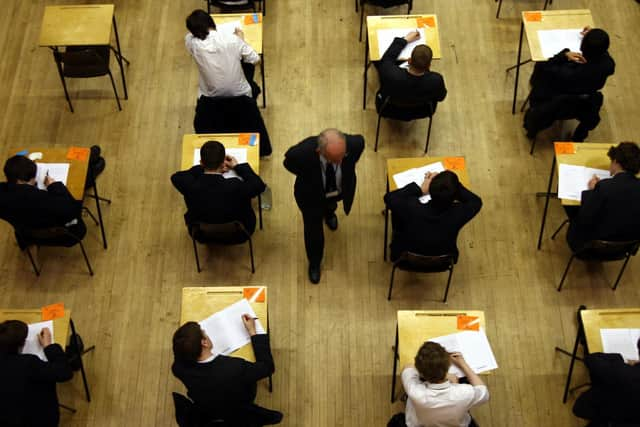Going ahead with exams next year will disadvantage Northern pupils, lobbying group warns
Lobbying group the Northern Powerhouse Partnership has issued the warning as some figures showed secondary school attendance rates in some local authorities in the north have been as low as 61 per cent as coronavirus infection rates in the areas have risen.
And the group wants to see coursework used to assess GCSE and A-Level students instead of exams.
Advertisement
Hide AdAdvertisement
Hide AdHead of Policy Sarah Mulholland said: “The Northern Powerhouse Partnership remains very concerned that students across the north are at a disadvantage if the Department for Education opts to go ahead with GCSE and A-Level exams next summer.


“Northern students are the ones currently being impacted negatively by high infection rates and self-isolation.
“Currently, the north has some local authorities with attendance rates for secondary schools as low as 61 per cent whereas a number of southern local authorities are close to the usual national average of 95 per cent.
“We appreciate the Government’s desire to try and keep things as normal as possible but this is now not possible in many northern communities.
Advertisement
Hide AdAdvertisement
Hide Ad“We urge the Government to commit to continuous assessment as it is a fairer alternative to the proposed examination plan.
“It would also reduce the risk of a similar fiasco such as we saw this summer.
“Assessing children this way, if it is planned in advance, may in fact be more rigorous than what is proposed if plans were to have to change at short notice.”
Statistics for the week ending October 15, which were placed in the House of Commons library following a written question from Wirral West MP Margaret Greenwood, showed the North West and Yorkshire and Humber were the regions with the lowest attendances in their secondary schools, at 81 per cent.
Advertisement
Hide AdAdvertisement
Hide AdThe South West had the highest rate of pupil attendance at 90 per cent.
The Government has said exams will go ahead in 2021, but will be held three weeks later than usual.
A Department for Education spokeswoman said: “Exams are the fairest way of judging a student’s performance, which is why they will go ahead next year, underpinned by contingency measures developed in partnership with the sector.
“Over the coming weeks we will jointly identify any risks to exams and the measures needed to address potential disruption, with fairness for students continuing to be our priority.”
Advertisement
Hide AdAdvertisement
Hide AdThe spokeswoman said schools were expected to provide pupils with remote education when they were self-isolating and headteachers could decide how to use their school’s premium allocation funding to tackle the impact of lost teaching time on pupils.
Comment Guidelines
National World encourages reader discussion on our stories. User feedback, insights and back-and-forth exchanges add a rich layer of context to reporting. Please review our Community Guidelines before commenting.